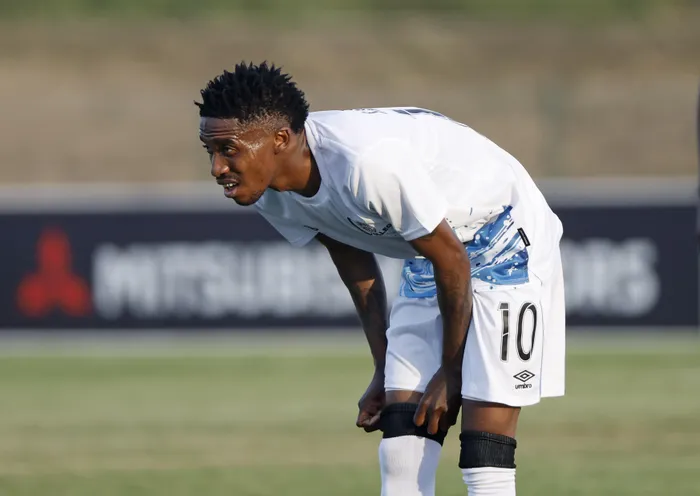Orbit College FC refutes the fake viral Monnapule Saleng apology circulating online
FOOTBALL

The 27-year-old Monnapule Salengwas loaned out to the newly promoted Motsepe Foundation Championship outfit at the start of the season, with Orlando Pirates confirming that it was a season-long agreement.
Image: BACKPAGEPIX
The newly promoted Betway Premiership side Orbit College FC has firmly distanced itself from a viral statement purportedly issued by the club, which falsely apologised to Monnapule Saleng, a household name in local football.
The fabricated narrative, posted on a fake Orbit College FC Facebook account, has sent ripples through social media, catching many football writers off guard who rushed to report the misleading information.
The controversial statement emerged just two days after remarks made by Orbit College head coach Pogiso Makhoye on the radio, which sparked mixed responses from fans and pundits alike. Saleng, on loan from Orlando Pirates for the ongoing 2025/26 season, was the focal point of Makhoye's critique, with the coach suggesting the team performs better without the talented winger on the field.
Makhoye’s remarks highlighted a pressing concern: the collective effort and performance of the younger players appeared more formidable when Saleng wasn’t involved.
The ill-fated apology was circulated by an unofficial Orbit College Facebook page, describing Saleng as a "valued member" of the club while expressing "sincere regret for any unintended distress" caused by the coach's comments.
The statement further claimed that the club was in “discussions with all involved parties” to navigate the miscommunication, painting a picture of discord that did not exist. However, Kganakga Matome, the general manager of Orbit College FC, quickly clarified, stating, “The club has not issued any statement.”
As the story gained traction, several football websites swiftly retracted their original postings or revised their articles as the truth settled in. The incident has served as a wake-up call for the media regarding the necessity of verifying sources before reporting on sensitive topics, particularly in the high-stakes world of football, where opinions can significantly influence perceptions.
As the situation unfolds, it highlights the influence of social media on narratives. More importantly, it serves as a reminder for clubs and players alike to be vigilant against misinformation that could have serious implications for reputations and morale.
Related Topics: